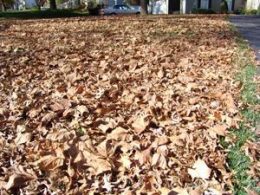When you get a combination of low temperatures, dry soils and poorly developed wheat crops it creates a concern among farmers about the wheats chances of surviving the winter. Will the wheat survive the combination of those conditions?
“Where wheat plants have a good crown root system and two or more tillers, they will tolerate the cold better. If plants are poorly developed going into winter, with very few secondary roots and no tillers, they will be more susceptible to winterkill or desiccation, especially when soils remain dry,” Jim Shroyer, K-State Research and Extension crop production specialist said. “Poor development of secondary roots may not be readily apparent unless the plants are pulled up and examined” he added.
If the seed is not planted at the correct depth, about one and a half to two inches, the crown will not be protected good enough from the weather conditions. The crown needs to be reasonably well protected in the soil so it can be protected from cold temperatures. If the wheat seed was planted to shallowly then the crown will not be buffered from the winter weather and will be more susceptible to winterkill.
Temperature ranges in the fall also have an effect on winterkill. If the temperatures suddenly drop into the low teens the wheat plants will not have had enough time to winter harden. If the fall temperatures gradually drop then the wheat will be adequately cold harden and should be able to handle the winter.
In most cases, producers won’t know for sure if the wheat has survived cold temperatures until early next spring.



